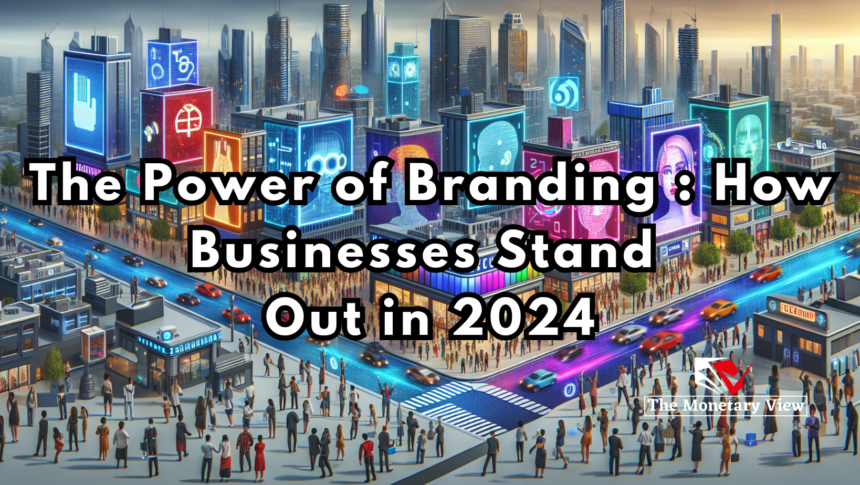In today’s highly competitive market, branding has become more crucial than ever. It is no longer just about having a catchy logo or a memorable tagline; branding represents the identity, values, and personality of a business. As we move into 2024, companies are increasingly focusing on building strong and authentic brands to stand out in a crowded marketplace. This article explores the importance of branding and how businesses can leverage it to gain a competitive edge.
What is Branding?
Branding refers to the process of creating a distinct identity for a product, service, or company in the minds of consumers. It encompasses everything from the company’s logo, visual elements, and messaging to its customer service and overall reputation. A strong brand helps customers differentiate one business from another, making it easier to attract loyal customers.
Key Elements of Branding:
- Brand Name: A memorable and easily recognizable name.
- Logo: A unique visual symbol that represents the brand.
- Tagline/Slogan: A short, impactful phrase that captures the essence of the brand.
- Brand Voice: The tone and style of communication with the target audience.
- Brand Values: The principles and ethics that the company stands by.
Why Branding is More Important Than Ever
In 2024, consumers have more choices than ever before. With the rise of digital platforms, e-commerce, and social media, customers are exposed to a multitude of products and services every day. In this environment, branding helps businesses cut through the noise and make a lasting impression.
Here are several reasons why branding is essential:
- Brand Recognition
A strong brand is instantly recognizable. Whether through a logo, color scheme, or even a unique voice, consistent branding across all platforms makes it easier for customers to identify a business. This familiarity builds trust and credibility. - Customer Loyalty
Companies with a strong brand often inspire loyalty from their customers. When people identify with a brand’s values or mission, they are more likely to continue supporting that business, even when competitors offer similar products. - Differentiation in the Market
In highly saturated markets, branding provides a way to stand out. By creating a unique brand identity that reflects the company’s values and goals, businesses can carve out a niche and distinguish themselves from competitors. - Emotional Connection
Successful brands create an emotional connection with their customers. This connection is often what drives people to choose one brand over another. Whether it’s the story behind the brand, the experience it offers, or the values it represents, a strong brand can evoke feelings of trust, excitement, and loyalty.
The Role of Digital Branding in 2024
As the business landscape continues to evolve, digital branding has taken center stage. With social media platforms, websites, and e-commerce becoming integral parts of the customer journey, businesses must ensure their online presence is consistent and engaging.
1. Social Media Branding
Social media platforms like Instagram, TikTok, and X (formerly Twitter) allow companies to interact with customers in real time. Businesses are now using these platforms to showcase their personality, share behind-the-scenes content, and engage with their audience in more meaningful ways. A strong social media presence enhances brand awareness and builds a community of loyal followers.
2. Website Branding
A company’s website is often the first point of contact for potential customers. A well-designed and user-friendly website that aligns with the brand’s identity can leave a lasting impression. Elements like the logo, color scheme, typography, and messaging should all reflect the brand’s core values.
3. Content Marketing
In the digital age, content is king. Creating valuable and engaging content that resonates with the target audience is an excellent way to strengthen a brand’s identity. Blogs, videos, podcasts, and social media posts offer opportunities for businesses to showcase their expertise, build trust, and connect with customers on a deeper level.
4. Influencer Marketing
Partnering with influencers is another effective way to boost branding. Influencers, with their established followings, can introduce a brand to a broader audience. In 2024, authenticity will be key in influencer marketing, with consumers gravitating toward influencers whose values align with the brand they promote.
How to Build a Strong Brand
Building a strong brand requires thoughtful planning and consistent execution. Here are some steps businesses can take to create a compelling brand:
- Define Your Brand Identity
Start by defining your brand’s core values, mission, and vision. What does your brand stand for? What makes it unique? This will serve as the foundation for all your branding efforts. - Know Your Target Audience
Understanding your audience is critical in crafting a brand that resonates with them. Conduct market research to gain insights into their preferences, values, and needs. Tailor your branding to appeal to your specific target market. - Create a Consistent Visual Identity
Consistency is key in branding. Ensure that your logo, color scheme, and typography are consistent across all platforms, from your website and social media profiles to marketing materials and packaging. - Develop a Strong Brand Voice
Your brand voice should reflect your brand’s personality and resonate with your audience. Whether formal, casual, humorous, or authoritative, ensure that your brand voice is consistent in all communications. - Deliver a Memorable Customer Experience
Your brand is not just about visual elements; it’s also about how customers experience your business. Providing excellent customer service, delivering quality products, and staying true to your brand’s values will help create a positive and memorable experience for your customers.
Conclusion
Branding is more than just a marketing tactic—it’s the heart and soul of a business. In 2024, with the rise of digital platforms and increasing competition, a strong and authentic brand is essential for long-term success. By understanding the power of branding and implementing strategies that align with your brand identity, businesses can build lasting relationships with their customers and stand out in a crowded market.







